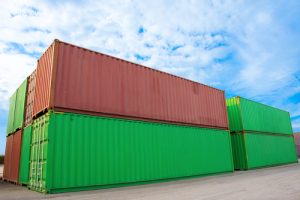French company Carbios has developed an enzyme-based recycling technology, which breaks down PET into monomers that can be used to create new plastic. Continue Reading

French company Carbios has developed an enzyme-based recycling technology, which breaks down PET into monomers that can be used to create new plastic. Continue Reading
 An industrial products manufacturer using recycled plastics receives an investment, and an alcohol brand will increase the recyclability of its packaging.
An industrial products manufacturer using recycled plastics receives an investment, and an alcohol brand will increase the recyclability of its packaging.
 Developments tied to China’s ongoing import crackdown grabbed readers’ attention last month. Other popular stories included a look at Ziploc’s curbside hopes and an analysis of bale yield trends.
Developments tied to China’s ongoing import crackdown grabbed readers’ attention last month. Other popular stories included a look at Ziploc’s curbside hopes and an analysis of bale yield trends.
MBA Polymers, a major manufacturer of recycled plastics, has announced it is reorganizing operations and bringing more of its future plastics production to the United States. Ironically, the first step in that shift will be shuttering the company’s lone U.S. facility, the corporate headquarters located in Richmond, California.
“It does seem counter-intuitive that we would be closing Richmond at the same time we are developing a new U.S. strategy, but that is indeed the case,” MBA Polymers president Mike Biddle told Plastics Recycling Update. “Our lease is up in Richmond and it is too small to try to turn into a production facility.”
MBA, which Biddle started in his garage in 1992 and opened the Gladstone site in 1997, has in recent years brought the bulk of production to facilities in Europe and China. The research and development arm of the company, formerly housed in Richmond, is now moving to the company’s 126,000-square-foot U.K. plant (though Biddle is quick to point out that elements of R&D currently take place at all of the company’s locations).
Biddle said the company’s plan for the U.S. is to mirror production realities taking place at its U.K., China and Austria operations. At those facilities, the company harvests plastics from used electronics equipment, automotive shredder residue (ASR) and, most recently, mixed rigid plastics from municipal waste streams.
Recent developments in the U.S. market have made expansion here possible for MBA and others. Biddle points to the U.S. Environmental Protection Agency’s recent decision to allow plastics mining from auto shredder residue as well as a growing e-scrap sector as key indicators of what the future may hold in the U.S.
“There is almost a ‘perfect storm’ of changes in the opportunities to recycle plastics in the U.S.” the executive said. “I can honestly say that I feel like I’ve been waiting over 20 years for this moment in time.”
Biddle gave no indication about where or when the start of the next phase in MBA Polymers’ U.S. production would occur.
 PE capacity in the North American market is expected to increase, and Pennsylvania’s governor says he’ll veto legislation prohibiting local plastic bag bans.
PE capacity in the North American market is expected to increase, and Pennsylvania’s governor says he’ll veto legislation prohibiting local plastic bag bans.
The plastics recycling industry is grappling with what to do about China’s Green Fence, with some arguing it’s a disaster and others saying it’s the best thing to happen to domestic plastics recycling in years.
A plastics recycling firm in Central Florida says investments are in place to build two wash lines and sell almost six months-worth of agricultural plastics.
 Agricultural plastics recycling expands in California, and another state looks to prohibit local governments from enacting bag bans.
Agricultural plastics recycling expands in California, and another state looks to prohibit local governments from enacting bag bans.
 A container deposit is proposed in Ireland, and four European countries are given a final warning for failing to meet plastic bag reduction guidelines.
A container deposit is proposed in Ireland, and four European countries are given a final warning for failing to meet plastic bag reduction guidelines.
 A Hawaii county bans polystyrene food-service packaging, and a Chinese operation is busted for some truly unsanitary recycling activities.
A Hawaii county bans polystyrene food-service packaging, and a Chinese operation is busted for some truly unsanitary recycling activities.
